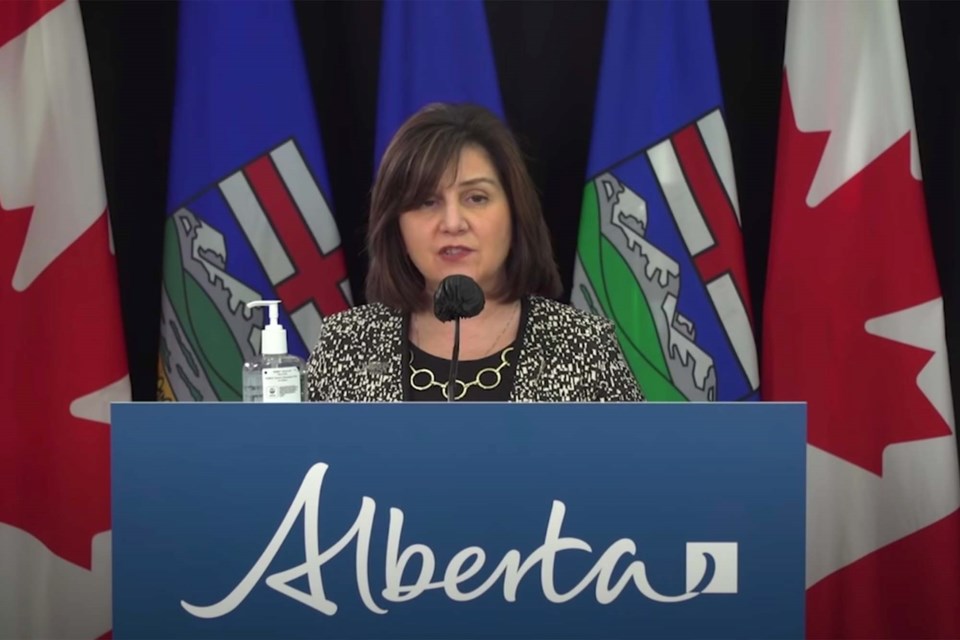St. Albert parents have split opinions on whether or not a move by the province to remove the Alberta Teachers’ Association from the disciplinary process involving teachers is a good idea.
“I'm a fairly convinced socialist and I believe that unions should and have proven that they can do a good job of doing disciplinary actions within themselves. [The UCP has created] a false problem. It doesn’t actually exist,” said St. Albert parent Steven Hofstede.
On March 31, Education Minister Adriana LaGrange introduced Bill 15, the Reforming Teacher Profession Discipline Amendment Act.
The bill would create the Alberta teaching profession commission and would appoint an “arm’s-length commissioner to oversee teacher and teacher leader conduct and competency complaints for the profession,” stated a press release. The process would apply to teachers and teacher leaders, whether or not they are ATA members.
The province said this will bring Alberta in line with other provinces, enhance transparency, and remove a perception of conflict of interest where a union can both advocate for and oversee disciplinary matters for its members.
Hofstede, a cabinet maker, said the ATA has demonstrated through its more than 80 years in existence, that it is capable of pursuing disciplinary action among teachers.
“This feels like an attempt on the part of the UCP to strip back things that should be part of the democratic organization of the ATA. Workers should be the ones making those decisions,” said Hofstede.
Hofstede is convinced this move is entirely political.
“The people who sit upon those kinds of committees, boards, institutions, tend to also be sort of political appointments that align with the current political party in power,” he said.
He said he is concerned because unions get to hold things like strike votes, who their leader should be, and disciplinary function.
“Once you remove that function from the union … essentially, you're creating a union that is toothless — it can't actually do what it's created to do,” he said.
Hofstede is also worried the province won’t select qualified people to run the body — citing the new curriculum as an example.
In a press release the ATA said Bill 15 would dramatically change the culture of the teaching profession and public education in Alberta.
“The ATA has always taken its work in discipline very seriously, and we have managed this process in a way that has always maintained the honour and dignity of this profession by protecting the public interest,” said Jason Schilling, president of the ATA, in a press release.
Schilling said the disciplinary process is transparent and accountable, which is a stark contrast to the process for private and charter school teachers and superintendents
Schilling said, if passed, the ATA would be left to act as a labour union.
Tanya, who wanted her last name withheld for fear of blowback, is a paramedic. She said she thinks there is a conflict when it comes to the ATA disciplining teachers.
If there's an issue that comes up — like for instance with that St. Albert teacher — an association is duty-bound to represent their members and a college would be duty-bound to protect the public from them,” she said.
Tanya thinks having a provincially-appointed arm’s-length commissioner is a good idea.
“I'm a paramedic. We had to split from having an association because we used to have the Canadian Paramedic Association be on our membership with the Alberta College of Paramedics and we had to split it just for that reason,” she said.
Tanya said they are still for self-governance.
“The college still has nominated members that are front-line practitioners, as well as non-front-line practitioners, members of the public. I think they're there to keep the public safe from our practice, so we have to make sure that we can meet the minimum standards to practice.
“It makes sense to me,” she said.
Tanya said she doesn’t understand why teachers think they can’t have their own representation.
“My daughter's in Grade 8. So my expectation is that teachers are held to a certain standard [and that] obviously they're not doing illegal things like sexual exploitation. I would want them held accountable not only by a criminal charge, but also that their college would hold them accountable, and they wouldn't be allowed to practice,” she said.
Would Tanya feel more comfortable as a parent if the legislation does pass?
“You can't adequately represent either side if it's the same person representing both the public and the practitioner,” she replied.
Data from the province states there are 53,000 practicing teachers and teacher leaders in Alberta and 46,000 members of the ATA are employed in public, separate, and francophone school authorities. There are 7,000 teachers and teacher leaders currently employed in other schools.
The province said in 2020, 0.25 per cent of practicing Alberta teachers and leaders had complaints filed against them. Of those, 0.018 per cent had their certificates suspended or cancelled due to unprofessional conduct.
The Reforming Teacher Profession Discipline Act would come into force on Jan. 1, 2023.




